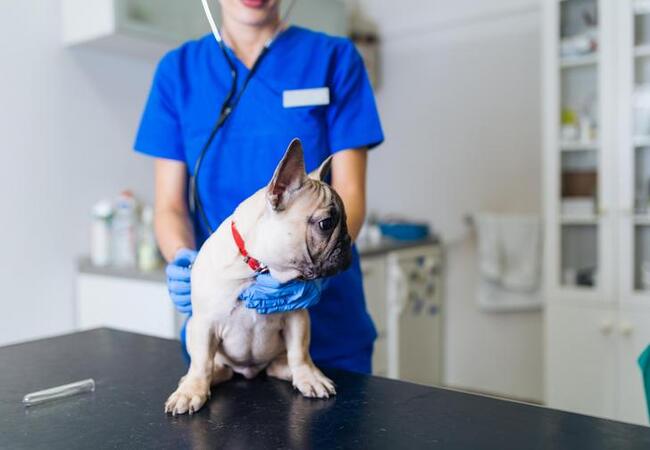Vet‑Approved 2025 Guide: Chemotherapy for Dogs – Benefits, Side Effects & Support 🐶

In this article
Vet‑Approved 2025 Guide: Chemotherapy for Dogs – Benefits, Side Effects & Support 🐶
By Dr. Duncan Houston BVSc
Chemotherapy can be a lifesaver for dogs diagnosed with cancer. Though often associated with humans, veterinary chemotherapy is tailored to maximize tumor control while maintaining a high quality of life for your pup. As a practicing veterinarian, I’ve developed this article to review treatment goals, drug options, common side effects, home care strategies, and comfort tools from Ask A Vet,to support your dog every step of the way. 🐶❤️
🎯 Treatment Goals
- Palliative care: Reduce pain or tumor size to enhance comfort.
- Adjuvant therapy: Lower recurrence risk post-surgery (e.g. osteosarcoma with amputation)—survival may improve from ~5 to 7–13 months.
- Curative intent: Treat cancers like lymphoma, often inducing remission and extending survival to 9–12 months and beyond.
💊 Common Chemotherapeutic Drugs
Veterinary oncology protocols often include:
- Carboplatin, doxorubicin, cyclophosphamide—often injectable, used for bone and soft-tissue cancers.
- Lomustine (CCNU): Oral chemotherapy for lymphoma, mast cell tumors—with side effects including GI upset and marrow suppression.
- Rabacfosadine (Tanovea): Among the first FDA-approved drugs specifically for canine lymphoma.
⚠️ Side Effects & Management
Unlike human chemotherapy, canine protocols use lower dosing to minimize side effects. Still, 15–25% of dogs may experience mild to moderate adverse effects; less than 10% require hospitalization.
Gastrointestinal Upset
- Symptoms: nausea, vomiting, diarrhea—typically starting 2–5 days post-treatment.
- Care: Withhold food & water for 12 hrs, start bland diet (boiled chicken & rice), use anti-nausea meds like maropitant or ondansetron.
Bone Marrow Suppression
- Monitored via CBC about 7–10 days post-chemo; GI tract & marrow are most affected.
- If neutrophils <1,000/µL, antibiotics may be prescribed; fever or lethargy may require hospitalization.
Specific Toxicities
- Cyclophosphamide: Risk of sterile hemorrhagic cystitis—monitor for blood in urine.
- Doxorubicin: Potential heart toxicity—used with caution in patients with cardiac issues.
- Lomustine: Possible hepatotoxicity and marrow suppression.
Hair & Coat Changes
Most dogs experience minimal hair loss, except breeds with continuously growing coats (Poodles, Shih Tzus), and cats may lose whiskers, not full fur.
🏡 Home Care & Monitoring
- Offer bland, small meals during GI upset.
- Ensure fresh water is always available to prevent dehydration.
- Monitor temperature; a fever ≥103 °F is a veterinary emergency.
- Check for urinary changes or signs of cystitis.
- Track energy, appetite, vomiting, diarrhea, and bathroom behaviors.
🔬 Quality of Life & Support Strategies
Veterinary chemo aims for a favorable balance—shrinking tumors while allowing dogs to enjoy life.
- Ask A Vet: Virtual check-ins to adjust protocols or manage side effects without clinic visits.
💉 Administration & Safety
- Drugs are given via IV in-clinic, oral at home, or via subcutaneous infusion in specialized protocols.
- Handling precautions apply: urine and feces may remain drug-contaminated up to 3 weeks—use gloves, and follow vet instructions for safe cleanup.
🎗️ Emotional & Ethical Considerations
Cancer is overwhelming—deciding on chemotherapy can be emotional. Anecdotes like a pug owner extending life and quality of life with chemo remind us there’s no “one-size-fits-all.” Balance your pup’s needs, feelings, and evidence-based guidance.
🏁 Final Thoughts
In 2025, veterinary chemotherapy has evolved to prioritize quality of life—with protocols designed to minimize suffering and keep dogs happy and engaged. If your dog is diagnosed with cancer, explore all options, ask questions, and leverage supportive tools like **Ask A Vet to guide you through. With thoughtful treatment and compassionate care, chemotherapy can mean more wagging tails and peaceful moments. 🐾❤️
Wondering if chemo is right for your pup, or need help managing side effects? Visit Ask A Vet for personalized guidance tailored to your dog’s journey. 🐶✨






